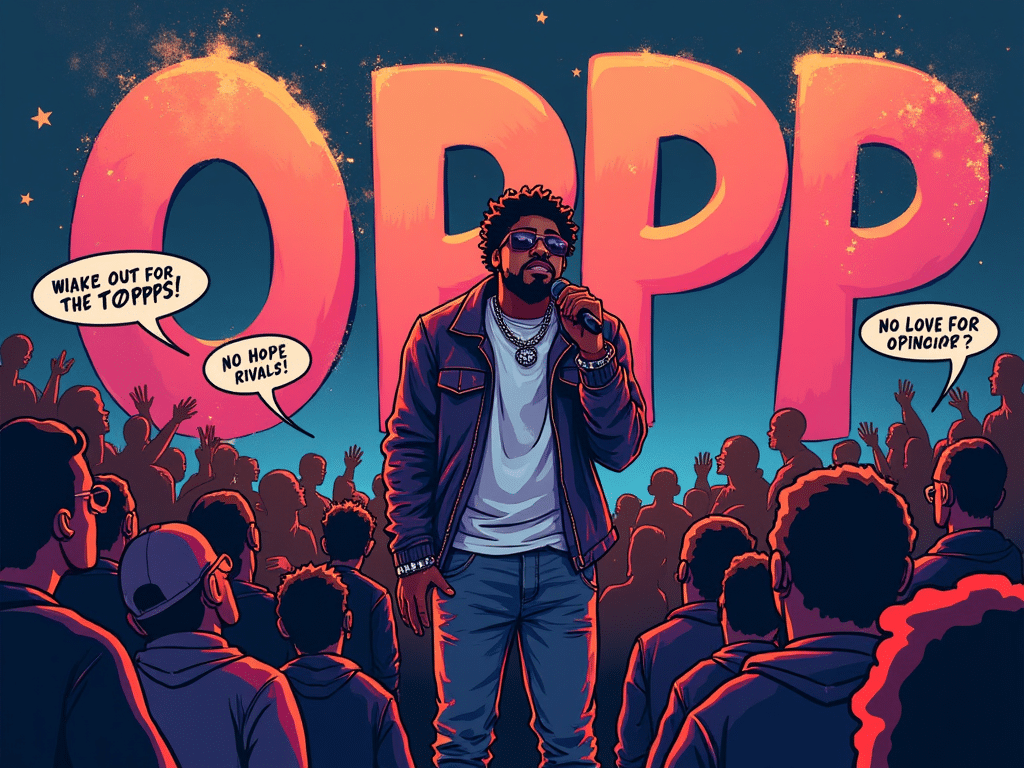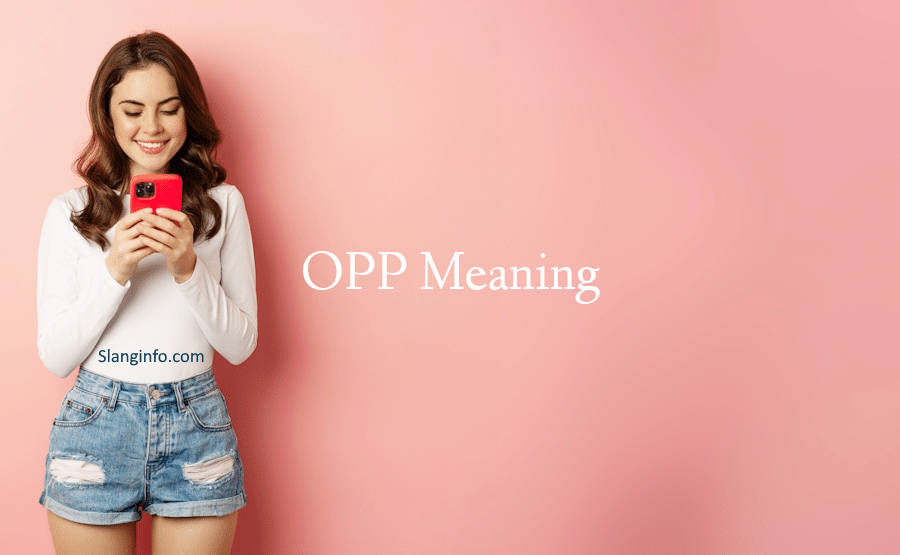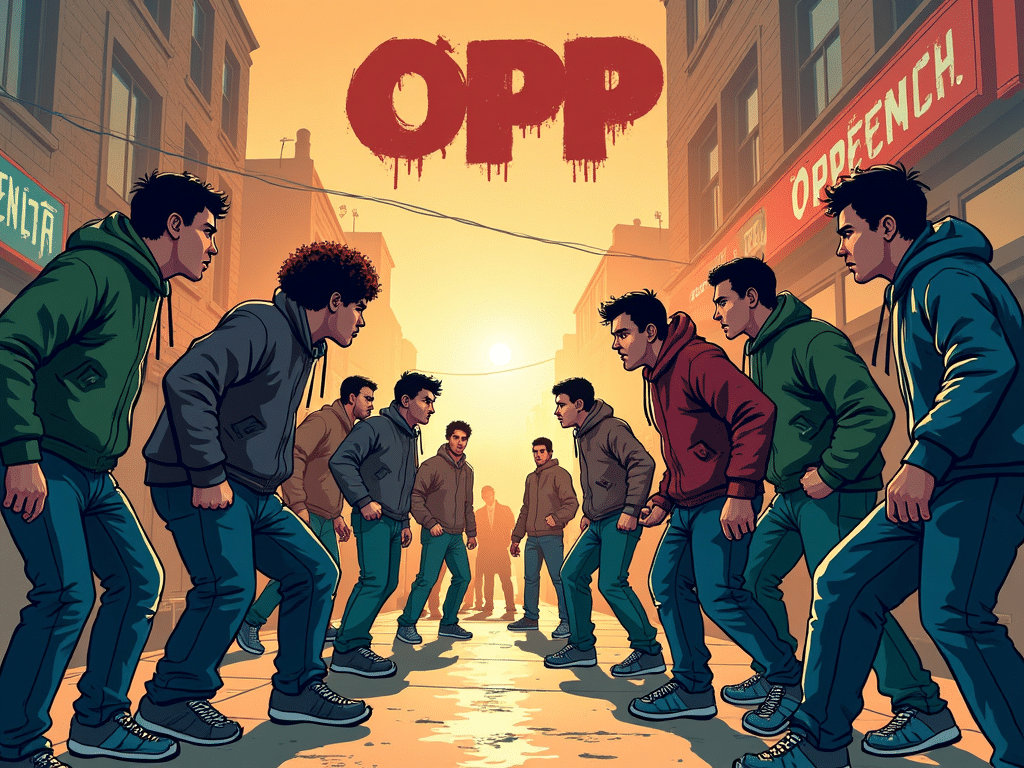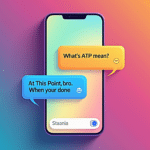In the ever-evolving world of slang, “opp” has emerged as a popular term with roots in urban and hip-hop culture. This short but impactful word has spread across various communities, finding its way into song lyrics, social media posts, and everyday conversations. But what exactly does “opp” mean, and where did it come from? Let’s dive into the world of this intriguing slang term.
| Key Takeaways |
|---|
| 1. “Opp” is derived from “opposition” or “opponent” |
| 2. Originated in urban neighborhoods and gang culture |
| 3. Commonly used in hip-hop lyrics and social media |
| 4. Now used in mainstream youth slang and online gaming |
| 5. Reflects the evolving nature of slang language |

Origins and Evolution
The term “opp” has its roots in African American Vernacular English (AAVE) and urban culture. It’s a shortened version of “opposition” or “opponent,” originally used in gang culture to refer to rivals or enemies from opposing groups.
As someone who’s studied urban linguistics for years, I’ve watched “opp” evolve from a niche term to a widely used piece of slang. Its journey is similar to other AAVE terms that have entered mainstream usage, like “spill the tea” (sharing gossip) or “rizz” (charisma or charm).
The evolution of “opp” can be broken down into three main stages:
- Gang culture: Used to refer to rival gang members or enemies
- Hip-hop adoption: Popularized through rap lyrics and hip-hop culture
- Mainstream usage: Adopted by wider youth culture and online communities
Also read: HWDP
Modern Usage in Different Communities

Today, “opp” is used across various communities, each with its own nuanced interpretation:
Hip-hop Culture
In hip-hop, “opp” is frequently used in lyrics to denote rivals or adversaries. For example, a rapper might say, “I stay strapped ’cause these opps are always watching.” Here, “opps” refers to the artist’s enemies or competitors in the music industry.
Mainstream Youth Slang
As the term has spread, its meaning has broadened. In everyday youth slang, an “opp” might be:
- A romantic rival
- A competitor at school or work
- Anyone perceived as an adversary or obstacle
For instance, you might hear someone say, “That girl is my opp in the school election.”
Also read: Bougie
Online Gaming
In the world of competitive online gaming, “opp” has found a natural home. Gamers use it to refer to their opponents in matches. You might see comments like, “GG to my opp, they played well” (GG means “good game”).
This usage is similar to how gamers might use terms like “sus” (suspicious) or “bussin'” (really good) to describe game situations or opponents.
Impact on Contemporary Language

The widespread adoption of “opp” demonstrates how slang can enrich language, providing new ways to express complex ideas succinctly. It allows speakers to convey not just the idea of an opponent, but also the cultural context and attitude associated with the term.
In my research, I’ve found that terms like “opp” often serve as linguistic shortcuts, packing a lot of meaning into a small package. They can:
- Create in-group solidarity
- Express nuanced relationships
- Add flavor and style to communication
However, it’s important to use such terms thoughtfully and be aware of their origins and potential implications.## The Evolution of “Opp” from O.P.P.
Interestingly, “opp” isn’t the first slang term derived from the word “opponent.” In the early 1990s, the rap group Naughty by Nature popularized the term “O.P.P.” with their hit song of the same name. In the song, “O.P.P.” stood for “other people’s property,” a playful euphemism for infidelity.
While “O.P.P.” and “opp” share a linguistic root, their meanings and connotations have diverged over time:
| Term | Meaning | Connotation |
|---|---|---|
| O.P.P. | Other people’s property (infidelity) | Playful, cheeky |
| Opp | Opposition, opponent, enemy | Serious, confrontational |
This evolution reflects the dynamic nature of slang and how terms can take on new meanings as they move through different cultural contexts.
Also read: 💜 Purple Heart Emoji Meaning
Cultural Significance and AAVE
It’s crucial to acknowledge that “opp,” like many slang terms, has its roots in African American Vernacular English. AAVE is a rich and complex dialect with its own unique grammar, vocabulary, and cultural significance.
When using terms that originate from AAVE, it’s important to:
- Understand the context: Know the history and cultural background of the term.
- Give credit: Acknowledge the communities that created and popularized the slang.
- Use respectfully: Avoid appropriation or misuse that strips the term of its cultural meaning.
As a linguist, I believe it’s essential to approach slang with curiosity, respect, and a willingness to learn about the cultures that shape our language.
Expert Tips for Navigating Slang
If you’re interested in incorporating terms like “opp” into your vocabulary, here are some tips:
- Listen and observe: Pay attention to how people around you use slang in different contexts.
- Start small: Begin by using slang terms you’re comfortable with and understand well.
- Be authentic: Use slang that feels natural to you, not just because it’s trendy.
- Educate yourself: Learn about the origins and cultural significance of the slang you use.
- Be open to change: Slang evolves quickly, so stay curious and adaptable.
Remember, the goal is to communicate effectively and respectfully, not just to sound cool.
Conclusion
“Opp” is a powerful example of how slang can evolve and spread across communities, from its origins in urban gang culture to its current use in mainstream youth slang and online gaming. Understanding the meaning and cultural context of terms like “opp” can enrich our language and help us communicate more effectively in diverse settings.
However, it’s important to approach slang with respect and awareness, especially when it comes from communities with a history of marginalization. By learning about the origins and significance of slang terms, we can use them in a way that honors their cultural roots and promotes understanding.
So, the next time you hear someone refer to their “opp,” take a moment to appreciate the complex linguistic and cultural journey that brought that term into the conversation. And who knows? You might just find yourself using it too – just remember to do so with respect and understanding.
For more insights into slang and internet culture, check out our articles on “IYKYK meaning” (if you know, you know) and “FYP meaning” (for you page). Happy slang-ing!







